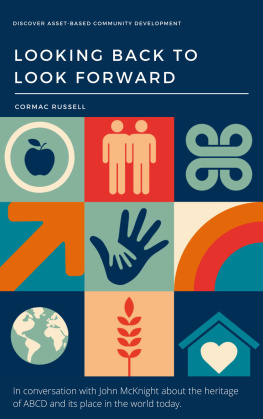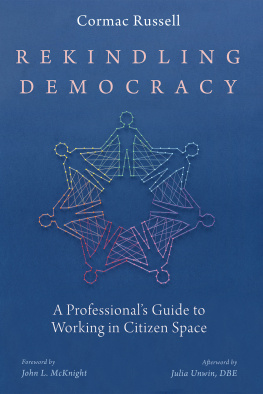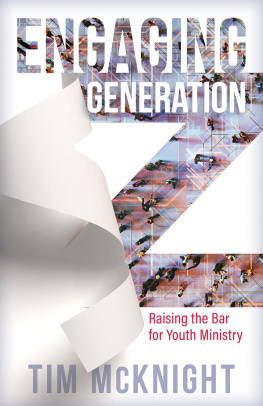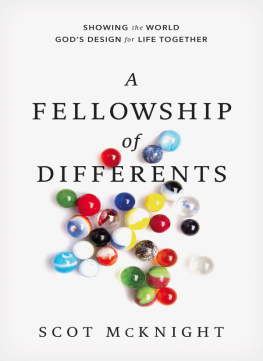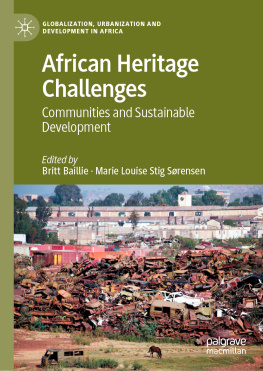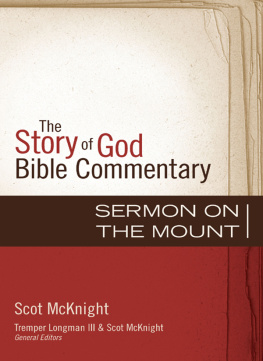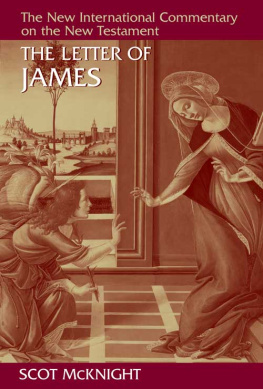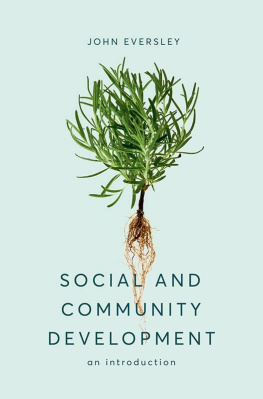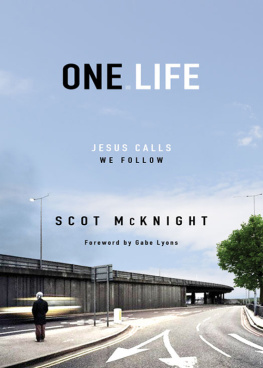Contents
Guide
Third Edition
Copyright 2020 Cormac Russell
All rights reserved. No part of this book may be reproduced in any form without the written permission of the publisher, except by reviewers, who may quote brief passages in a review.
ISBN: 9798534266986
First printing March 2018
Third Edition July 2021
Published Independently
Visit www.nuturedevelopment.org
Or for further information on our ABCD training and support offers, visit communityrenewal.learnworlds.com
There are many lines in this short, insightful book that resonated with me. We are indeed too often looking for solutions in well-lit places, instead of revealing the invisible all around us. Cormacs book, and the voice of John McKnight and others contained within, does shine a light on the invisible. It makes us question what we thought we knew about peoples capacity and agency and then it calls on us to change our behaviours accordingly.
As with many radical concepts, the prevailing culture works against change. Too often, in practice I have seen ABCD reduced to producing an asset map as part of a consultation on a community plan. The system has a strong pull towards acting in its own self-interest. It was a pleasure, therefore, to spend time with this book and be reminded of the radical origins of the concept and to think again about what might be possible if we thought differently about ourselves, our communities and our governance.
Jennifer Wallace
Head of Policy
Carnegie UK Trust (United Kingdom & Rep. of Ireland)
This book is a gift. A gift for those who love John McKnight and Asset-Based Community Development and a gift from Cormac Russell who has captured the story of Johns life and the people who have influenced John with such eloquence. This book is a pleasure to read as the interview style helps us feel like we are reading a live story, a fireside chat with John, while giving us important, quotable insights into Johns thinking. Cormac is one of the few people who could write this book. He understands ABCD almost as well as John and can therefore help the reader to engage in the fine nuances of Johns brilliance. I highly recommend this book for change makers around the world.
Paul Born
Tamarack Institute
Co-CEO Tamarack & Director, Vibrant Communities
Author of several books including: Deepening Community. Finding Joy
Together in Chaotic times. (Canada)
Through insightful and thought-provoking interviews with John, Cormac has certainly given ABCD animators and connectors around the world a deep understanding and appreciation of the rich heritage and history of ABCD. He has provided the trumpet call for all to continually understand the past and faithfully journey into the future of being within communities.
As a public servant, Cormac has provided me with practical handles and clear perspectives, giving impetus for courage and boldness to arise in order to go beyond the comfort zone and safe facade of institutions.
Through the endearing and exceedingly deep conversations with John, I seem to have encountered him face-to-face, and heard the soulful voice of a man with a keen mind, a big heart and a deep belief in the power of communities. This book certainly honors a man whose lifetime work has proliferated to different communities in many countries.
I heartily recommend Looking Back to Look Forward to all who believe that our communities indeed have all the assets to pursue and exceed our own dreams and aspirations.
Mr. Phua Chun Yat
Head of Planning and Organisation Development
AMKFSC Community Services Ltd, (Singapore)
I highly recommend Looking Back to Look Forward to anyone with a passion to unleash the power of communities for positive social change. Over the past five years, Wellspring Foundation has worked closely with Cormac Russell and Nurture Development to help 49 schools connected to 484 villages in Rwanda make a significant shift from scarcity to abundance through Asset-Based Community Development (ABCD). The results have been astonishing. As communities step up and take ownership over the education of their own children they are accomplishing things that aid agencies and governments typically spend years trying to accomplish: drop outs are reducing, children are receiving nutritious meals, school infrastructure is being improved, and teachers are being better supported, all through community effort. By some estimates, community investment is outpacing government investment 3:1. In most cases, Rwandan communities have realized that ABCD is merely re-introducing them to a language they already had before the culture killers came. I have never had the privilege of meeting John McKnight and so I found it fascinating to gain an insiders view of his extraordinary life, his influences, and how ABCD was birthed. So stoke a fire, grab a cup of hot tea, and join the conversation.
Richard Taylor
Co-Founder and Rwanda Country Director
The Wellspring Foundation for Education (Rwanda)
This is a timely and important book, taking us on a wondrous journey through the evolution of John McKnights life and work. In it we meet people John considers most influential for him. In the process, it also grounds us in the work and ideas of people who have informed and shaped what has come to be known as Asset-Based Community Development (ABCD).
As Johns own thinking has moved from a critical analysis of institutions and professionals to a practical approach for citizens and their associations, and then gradually into a varied and adaptive set of different approaches that seek to fit the local context and asset base, ABCD has become a kind of worldwide movement. Here we learn through guided conversations between Cormac and John how each of these one-of-a-kind people informed his thought. As importantly it also features Cormacs own take on things as he looks forward to how ABCD principles and practices can be applied to an ever-widening circle of people and places.
Riveting as a public speaker and storyteller, one of Johns gifts is that he has constantly sought to deepen his own understanding of how things work, as these intellectual and personal friends so aptly demonstrate. Throughout, his core values have been consistent, but his ability to deepen and reweave his analysis based on new experiences and learning from others is truly remarkable. And his capacity to deliver his evolving analysis to a wide range of audience, through stories and clear summary principles, is for most of us who have travelled with him - unrivalled.
In terms of the people John describes here, it is noteworthy that these folks are all renegades, and most had a following of their own. They are independent, radical (going to the root of things), and feisty. John tried to understand them in their own terms and his descriptions of their role in his own thinking are telling. His measure of their role and value for us all was this: how does this person help me understand my experience?
And what a cast of characters it is! Ivan Illich and counter-productivity, Bob Mendelsohn and the medicalization of everyday life, Saul Alinksy and the basics of organizing for power, Judith Snow on welcoming the stranger, Jerry Miller and the illusion of believing anything gets better by institutionalizing dangerous people, Bob Rodale and faithful stewardship of the land and its bounty; Frank Haiman on the value of every person especially those at the edges, Peter Block and how to recognize and enhance the abundant community, Stan Hallett and the necessity of citizen associations and alternatives to the kind of modern technology that breaks down rather than enhances community, and Jody Kretzmann, who as co-founder of the ABCD, has been the personal embodiment of ABCD values in practice.

